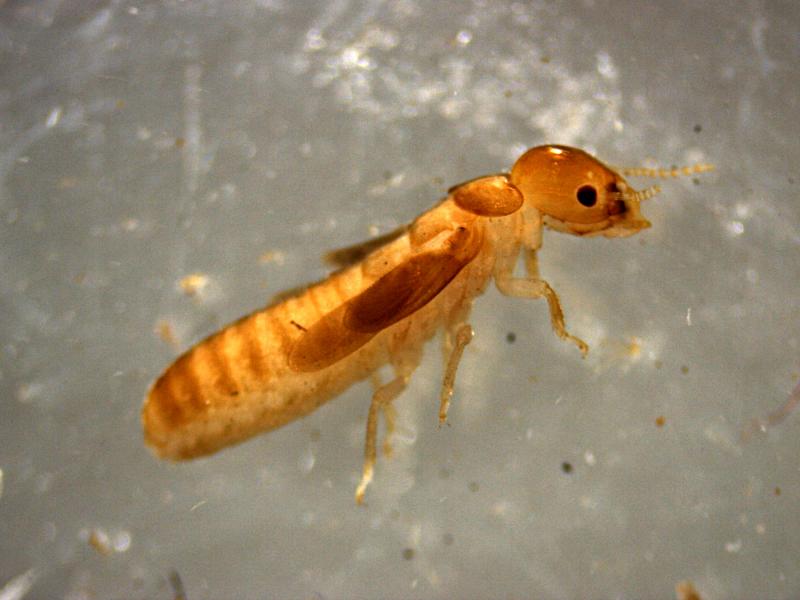PHILADELPHIA – The U.S. Department of Agriculture (USDA) confirmed today that a recent U.S. Customs and Border Protection (CBP) termite interception in Philadelphia was the area’s first recorded interception of that termite species.
CBP agriculture specialists discovered 20 live specimens, suspected of belonging to the infraorder Isoptera, February 10 inside the wood packaging material used to secure a shipment of pineapples from the Dominican Republic.
A local USDA entomologist identified the specimens as Cryptotermes sp (Kalotermitidae), a species from the drywood termite family that occurs in the West Indies. The entomologist also reported the interception as a first-in-port discovery. The national pest interception database verified the first-in-port claim today.

Cryptotermes sp (Kalotermitidae), a species from the drywood termite family that occurs in the West Indies
These drywood termites are also present in many tropical, subtropical and warm temperate regions of the world. Termites of the order Isoptera cause approximately $1.5 billion in damage to wood structures in the southeastern United States.
Currently, invasive species in general cause an estimated $136 billion in lost agriculture revenue annually. Visit USDA National Invasive Species for more information on invasive threats to U.S. agriculture.
“Intercepting these destructive insect pests at our nation’s borders is of paramount concern to U.S. Customs and Border Protection,” said Susan Stranieri, CBP Port Director for the Area Port of Philadelphia. “CBP agriculture specialists are very serious about protecting America’s agriculture industry. They remain vigilant at intercepting invasive insect and plant species at our ports of entry.”
In addition to the termite discovery, CBP agriculture specialists discovered heavily infested wood packaging material (WPM) – wood pallets and bracing – in this shipment. An earlier shipment of Dominican Republic pineapple February 5 also shipped with heavily infested WPM.
CBP agriculture specialists captured 43 Isoptera (termite) specimens from that earlier shipment.
CBP ordered all WPM re-exported to Dominican Republic.
CBP agriculture specialists have extensive training and experience in the biological sciences, risk analysis, and in imported agriculture inspection techniques. CBP agriculture specialists are the first line of defense in the protection of U.S. agriculture, forest and livestock industries from exotic destructive plant pests and animal diseases.
On a typical day nationally, CBP agriculture specialists inspect almost 1 million travelers to the U.S., and a significant amount of air and sea cargo imported to the United States. They intercept 4,379 prohibited meat, plant materials or animal products, including 440 insect pests.
Please visit CBP’s Agriculture Protection webpage to learn how CBP safeguards our nation’s economy by protecting our agriculture industries.
CBP agriculture specialists work closely with USDA’s, Animal and Plant Health Inspection Service (APHIS), Plant Protection and Quarantine (PPQ) to protect our nation’s agriculture resources against the introduction of foreign plants, plant pests, and animal diseases.
Read more about the USDA’s APHIS, PPQ program.

